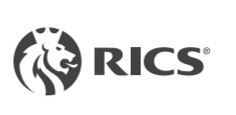 The latest survey by the Royal Institution of Chartered Surveyors (RICS) reports a resilient UK housing market, but warns of headwinds next year.
The latest survey by the Royal Institution of Chartered Surveyors (RICS) reports a resilient UK housing market, but warns of headwinds next year.
The report shows that the housing market continues to strengthen, supported by greater buyer demand, which in turn helped to push up house prices for the fourth consecutive month.
The RICS survey, which polls estate agents and other property professionals, recorded a net balance of +12% in new buyer enquiries in November, which was largely unchanged from the previous month and highlighted “a modest but sustained recovery in buyer demand”.
Respondents expect house prices to continue rising over the next three and 12 months, reflecting a “robust outlook for the year ahead”.
The report also found that the number of new instructions rose for the fifth consecutive month, as evidenced by a net balance of +17% in the RICS survey.
However, agreed sales volumes remained broadly flat, with a net balance of +1% compared to +8% last time round.
Tarrant Parsons, RICS senior economist, commented: “Although the latest survey results continue to signal a steady improvement in buyer demand across the residential market, the broader macro environment is likely to pose additional headwinds moving forward.
“Most significantly, the recent rise in mortgage interest rates may curtail the recovery in market activity before long, and this is reflected in the slightly less optimistic sales expectations data coming through this month.”
While the housing market has strengthened since this summer, there are signs that things are starting to slow down – and there could be several headwinds next year; sales volumes have started to dampen, market appraisals in November were also on par with levels seen a year ago, while the stamp duty hike next April will ineveitbly have an impact on the housing market.
Tom Bill, head of UK residential research at Knight Frank, comments: “Current UK housing market data feels somewhat artificial. Demand is being boosted by sub-4% mortgage deals that are no longer available and some buyers are acting ahead of a stamp duty hike in April.
“Following the increase in government spending announced in the Budget, we recently revised down our UK house price forecasts to reflect the risk that inflation and mortgage rates will stay higher for longer. House price growth and transaction activity will feel more sustainable once the economy is heading decisively in the right direction.”
Knight Frank predicts that house prices will rise by 2.5% next year, and 3% in 2026.
Looking across to the lettings market, tenant demand declined slightly in November, with a net balance of –1%, marking the first decline since 2020, according to RICS. However, this could be due to seasonal factors.
Meanwhile, landlord instructions continued to fall, with a net balance of –13%, contributing to the ongoing imbalance between supply and demand in the rental sector. Despite the slower demand, rental prices are forecast to edge higher, with a net balance of +29% of respondents expecting increases in the near term.
According to Zoopla, average annual UK rents have increased by an average of £3,240 since Covid.


Comments are closed.